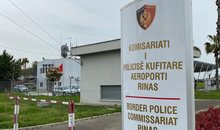
 Flash News
Flash News
Suspected of being murdered, photo emerges of 23-year-old found dead in Shkopet lake
Theth action, resident in tears: I built on my land with my life's expenses, the state should not destroy it
Directors targeted! After Fier and Durrës, Rama arrives in Elbasan
Name/Identification of the 23-year-old found dead near Shkopet Lake
IKM action in Theth, residents come out in protest
Pollution in Albania is the main cause of diseases in children under 5 years old

The United Nations requires immediate measures to reduce pollution levels in Tirana and in the country's big cities. In major cities such as Tirana, air quality often exceeds WHO recommended levels for harmful substances such as nitrogen dioxide (NO2) and particulate matter (PM10).
While Tirana may be at the highest level of urban pollution, other regions such as Elbasani, Fieri and Korça are equally affected, mainly due to industrial emissions. An assessment by the European Environment Agency concluded that air pollution in the environment has caused 4,600 premature deaths in Albania in 2021.
This is not just a statistic; it's a grim reality that translates into increased respiratory problems, health care costs and pressures on public services. Poor air quality impairs cognitive development leading to poor school performance, said Fiona McCluney, UN Resident Coordinator and Silvio Gonzato, EU Ambassador to Albania, in an opinion piece on "Climate Change and environmental protection – time to accelerate joint action'"
McCluney noted that air pollution is a critical concern that endangers our environment and public health. Moreover, it is a human rights issue that disproportionately affects our most vulnerable communities, especially children and the elderly. According to a 2021 UNEP study on the Western Balkans, air pollution remains a pressing challenge across the region.
In Albania, air quality suffers from the combined effects of transport, industrial activities and residential heating. Meanwhile, according to the UNICEF Climate Risk Index for Children 2021, air pollution is the biggest health burden for children under five across the Western Balkans region, with 99% of children exposed to levels of air pollutants that can severely affect their health and development, leading to lifelong consequences.
Despite Albania's relatively better performance compared to neighboring countries, there is no room for complacency.
Air quality monitoring systems in Albania are outdated and often unreliable. The Supreme State Audit found in 2018 that the data collected for quality monitoring lacked the rigor required to inspire effective policies. Furthermore, although the Ambient Air Quality Directive has been adopted, the enforcement mechanisms remain, unfortunately, insufficient. Albanian authorities must urgently address deficiencies in the air quality monitoring network and ensure that data is shared transparently with the public.
Albania is not alone in facing this challenge and the international community is here to support the country. A unified approach involving the EU, the UN and local stakeholders is essential. International initiatives such as UNICEF's Children's Climate Risk Index and the Youth Manifesto on Air Quality and Climate Change, with young people calling for concrete action, provide essential frameworks for action.
These initiatives highlight the critical need for public awareness and education about air quality and its direct impact on health. The EU accompanies Albania in its green transition by supporting more efficient and environmentally friendly transport, including the restoration of modernized train lines for its citizens with the region and Europe, as well as financing the future electric system of fast bus transport in Tirana.
It is important that Albania strengthens its National Environment Agency, expands its air quality monitoring network and ensures that it has the necessary resources and expertise to monitor air quality effectively, including the establishment of monitoring systems. alarm for air quality in schools and kindergartens. Also, regular assessments by the Public Health Institute should become the norm, raising awareness and providing real-time data to the public through an accessible Air Quality Index.
Protecting, maintaining and enhancing urban and peri-urban tree and nature cover can help reduce exposure to urban pollution.
For example, trees along roads act as a physical barrier, reducing the direct flow of pollutants from traffic to buildings. Healthy tree and nature cover can also reduce the generation and exposure to sand and dust in urban areas. The European Union will support reforestation and forest management in Albania through its "EU for Forests" program that will start next year.
Trees and urban and peri-urban nature bring many other benefits, helping to cool cities and reduce heat islands, improving the physical and mental health of residents, reducing flood risk, providing community space, encouraging of walking and cycling, creating green jobs, attracting shoppers and tourists to shady streets, and much more.
Promoting green mobility, such as the use of electric vehicles and the adoption of sustainable business practices, plays a critical role in reducing urban pollution and fostering healthier cities. Electric vehicles produce zero tailpipe emissions, significantly reducing air pollution levels in densely populated areas. When combined with sustainable urban planning and business models that prioritize environmental responsibility, these efforts can lead to cleaner air and more livable urban spaces.
Integrating green mobility with urban greening not only improves air quality, but also creates a more sustainable and resilient environment for future generations. The European Union has joined forces with Germany to build the new green transport network for the city of Tirana, a zero-emission electric bus transport system that significantly helps reduce harmful emissions.
We are at a key moment in the treatment of air pollution in Albania. The health of children and the future of communities depend on a strong commitment to cleaner air. Let's take collective action now to implement strong policies and strengthen monitoring systems, ensuring a healthier environment for generations to come. It's time to prioritize the air we breathe and protect the health of our people.
*This article is the first part of our joint UN-EU opinion series on 'Climate change and environmental protection – time to accelerate joint action' by the EU Ambassador and UN Resident Coordinator in Albania . The next two articles will focus on climate change and sustainable tourism./ Monitor
Latest news




Found dead in Shkopet Lake, 23-year-old has injuries to his throat
2025-07-09 10:41:39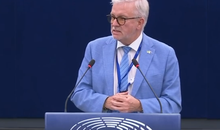


Hoxha: We will have a parliament that will surpass any comedy program!
2025-07-09 10:10:32

Directors targeted! After Fier and Durrës, Rama arrives in Elbasan
2025-07-09 09:53:57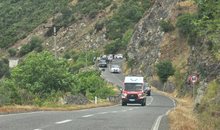
Name/Identification of the 23-year-old found dead near Shkopet Lake
2025-07-09 09:42:34
IKM action in Theth, residents come out in protest
2025-07-09 09:34:54
Reasons why the EU has not imposed new sanctions against Russia
2025-07-09 09:18:35
DW: Online scams increase human trafficking
2025-07-09 09:01:29

Reported missing by his father, 23-year-old found dead near Shkopet lake
2025-07-09 08:42:13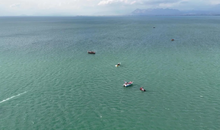

Horoscope, what do the stars have in store for you today?
2025-07-09 08:25:44
Sun and rain, Wednesday with unstable weather
2025-07-09 08:06:58
Posta e mëngjesit/ Me 2 rreshta: Çfarë pati rëndësi dje në Shqipëri
2025-07-09 07:52:02

Tabaku: Salianji bore a political cost that no one in Albania has borne
2025-07-08 22:36:15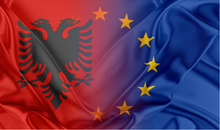


Sekretet për të shijuar verën si një ‘profesionist’
2025-07-08 21:45:06

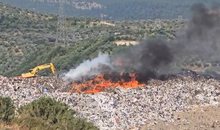
Albania's Waste Crisis: Toxic Smoke and Deep Governance Problems
2025-07-08 21:13:07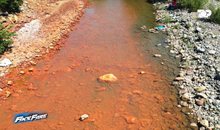
Alarming pollution in Fushë-Arrëz, copper factory waste turns the Fan River red
2025-07-08 21:07:14

Poll/ How do you assess the Prime Minister's intervention in local government?
2025-07-08 20:40:01
28 arrested in Italy and Spain for drug trafficking, including an Albanian
2025-07-08 20:24:14
Residents clash with police in Theth: We are on our land
2025-07-08 20:11:41
Death of 27-year-old in Lipjan, Osmani: To be investigated independently!
2025-07-08 20:06:52
Trump promises US will send more weapons to Ukraine
2025-07-08 19:54:25

EU targets health, education, police and cadastre as areas of corruption
2025-07-08 19:23:34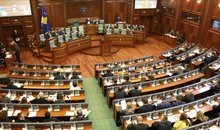


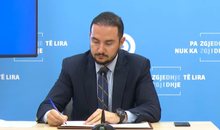

Salianji after his return: I did not oppose for functions, but for vocation
2025-07-08 18:23:15
Will he run in the 2029 elections? Here's how Salianji answers
2025-07-08 18:16:09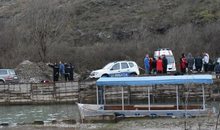
Boat captain drowns after diving into water to save two tourists in Shkodra
2025-07-08 18:05:12
Salianji from the DP headquarters: I brought a drug trafficker to justice
2025-07-08 18:03:26
After Fier, Rama "landes" in Durrës, dismissals expected
2025-07-08 17:53:32
Ervin Salianji arrives at the blue headquarters, welcomed by supporters
2025-07-08 17:45:12

EU approves final steps for Bulgaria's Eurozone membership
2025-07-08 17:43:06

Zhupa after Salianj's release: Inspiration for every opposition member
2025-07-08 17:19:39
Actor David Killick passes away
2025-07-08 17:09:23



Threatened with dismissals, Rama arrives at the Fier municipality
2025-07-08 16:39:19
Extreme temperatures temporarily close Acropolis in Greece
2025-07-08 16:30:34

A plot of cannabis is discovered in Mazha, Kruja
2025-07-08 16:13:48

Republika Srpska allocates additional 22 million euros for lobbying in the US
2025-07-08 15:52:04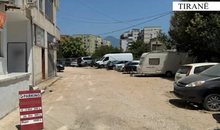
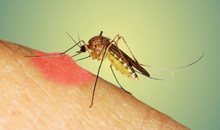
Spices that protect you from mosquitoes!
2025-07-08 15:30:03

Accident on the Vlora-Qeparo axis, one injured
2025-07-08 15:11:52
Berat, 17 years part of UNESCO's world heritage
2025-07-08 15:03:30
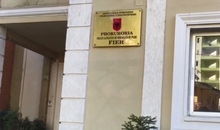

Cost of living increases, inflation rises to 2.4% in June, driven by food
2025-07-08 14:29:54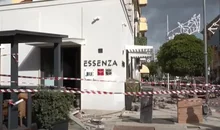
VIDEO/ Restaurant roof collapses in Italy, one victim and ten injured
2025-07-08 14:18:44
Requested release from cell, Supreme Court leaves Veliaj in prison
2025-07-08 14:07:41
TikTok shutdown/ Austrian media: Rama benefited politically from the app ban
2025-07-08 13:48:25
Acropolis temporarily closed due to heat
2025-07-08 13:31:09
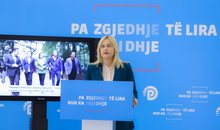


Salianj's release/Berisha: He was politically condemned by Rama and Xhafa!
2025-07-08 13:00:13

Knife attack on Peshkopia Boulevard
2025-07-08 12:44:10


Fier Court decides on the conditional release of Ervin Salianj
2025-07-08 12:15:23
Cost of living increases, inflation rises to 2.4% in June due to food
2025-07-08 12:00:16

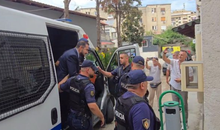
Requesting conditional release, Ervin Salianji arrives at the Fier Court
2025-07-08 11:16:36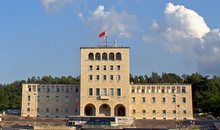
The first phase of university applications begins today
2025-07-08 11:10:52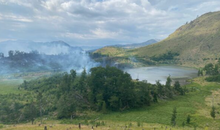
Fire in Lura, flames endanger the National Park
2025-07-08 10:53:43
Trump warns of 35% tariffs on Serbia and 30% on Bosnia and Herzegovina
2025-07-08 10:37:32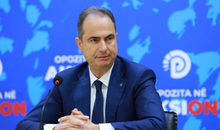
Thethi rooster and the dung cock
2025-07-08 10:24:01
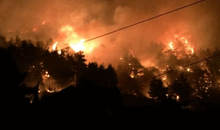
Fire in Dukat endangers Llogara National Park
2025-07-08 10:01:39
International drug search: 36-year-old arrested in Durrës (NAME)
2025-07-08 09:50:48
Thethi, tourists "criticize" modern trend
2025-07-08 09:39:54
Fire on Mount Dukat still active, Llogara National Park at risk
2025-07-08 09:28:12
Veliaj's appeal to be heard today in the High Court
2025-07-08 09:16:02
"Bad sign for democracy"/ Parliament neglects reporting by institutions
2025-07-08 09:04:56
Today's hearing at the Fier Court, Salianji requests conditional release
2025-07-08 08:56:39


